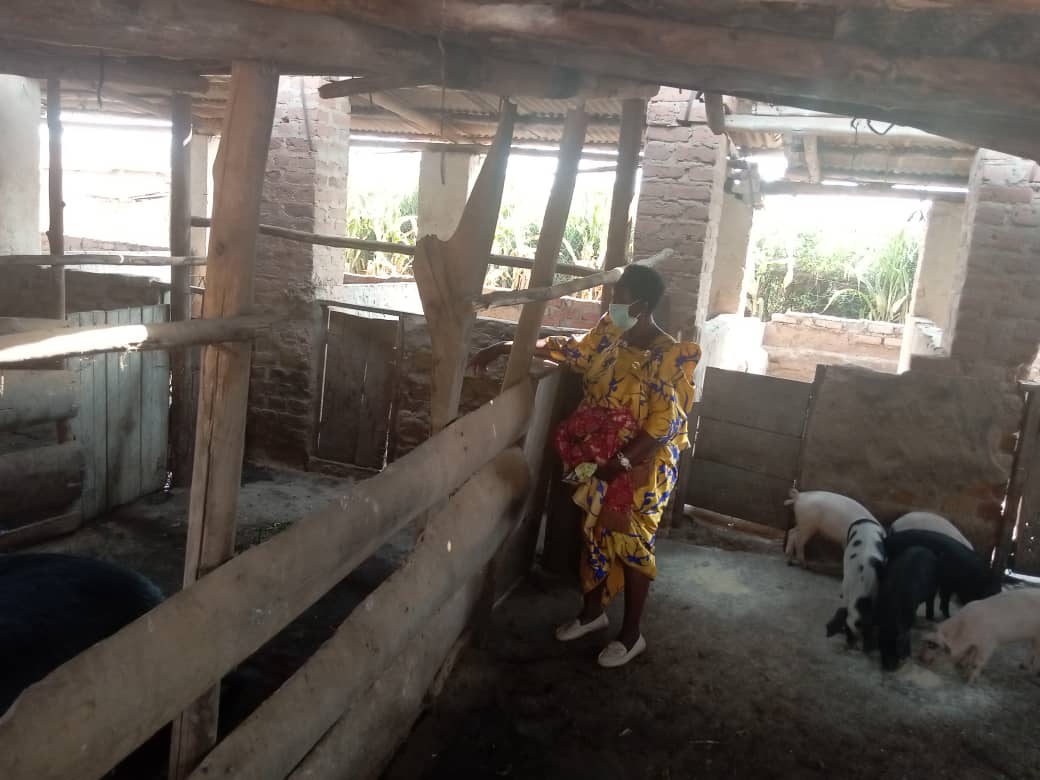
SEMBABULE – A section of beneficiaries in Mateete, Sembabule district have thanked the government for coming up with the poverty alleviation programme dubbed Emyooga that has since transformed their lives for the better.
This was at an event where Minister of State for Microfinance Haruna Kyeyune Kasolo was monitoring SACCOs in Sembabule district on January 24.
Emyooga, a presidential Initiative that was rolled out in October 2020 aimed at wealth and job creation. It is intended to support among others, market vendors, welders, taxi drivers, carpenters, boda-boda riders, women, performing artists and restaurant owners who come together in the form of savings and credit co-operative societies.
Ms Ddungu Nassali, a resident of Mateete says Emyooga money has helped her start a coffee plantation, rear goats and take care of her cow which generates income for her in milk production.
Ms Nassali who got Shs 5million from the scheme says she was also able to start a banana and piggery project in the seed capital.
“I used to sell the piglets because I lacked money to feed them. Feeds were expensive but now from the money I got, I get feeds from my farm and also buy fertilizers for my coffee and banana plantations,” she says.
She thanked the government for giving them the money and said they will keep the paying discipline so that it benefits the other members in the SACCOs as well.
“My biggest challenge was buying the feed because each kilogramme is Ugx 900shs. I also call upon the government to help us nget a remedy for swine fever because we are losing a number of pigs in this area,” she said.
Ms Sofia Nansubuga the treasurer, Mateete Women Entrepreneurs SACCO says she got Ugx 3.5million according to how she had been saving over time.
She put part of this money in her electrical shop business and the rest to boost production in her farm.

“The program has changed us. At first we doubted its authenticity but later realised it was legitimate. We thank the government and MFSC for teaching us well. We have moved from one level to another. I have been able to pay school fees and also take care of my three children,” she says.
Ms Nansubuga says her biggest challenge was the Covid-19 lockdown as people were unable to work and pay their loans. She shares that some people to date have not yet totally brought back the money due to the financial hardships that were brought by the pandemic.
The COVID-19 pandemic affected many associations because they were unable to congregate or receive training on how to utilise the funds. This was because of limitations of the COVID-19 gatherings and travel restrictions.
Mr Paul Balikumwe, a fish farmer in Sembabule South also thanked the government for the scheme. He says they started by saving Ugx200,000 and he was given Ugx600,000 which he used in digging ponds for the fish.
He explains that the situation before receiving the Emyooga money was not easy because he did not have a capital boost, but just an idea of fish farming.

“I now have three fish ponds and each has 1000 fish. I hope to get some good money. I pray we get a market for our products so we get to earn from what we are dealing in.”
In his remarks, Minister Kasolo told the people that the money was given to them by the government but it didn’t give it to individuals, but rather SACCOs to lend it to people so they can return it and benefit others.
He was dismayed by the people’s continued failure to return the money and promised to do a lot of sensitisation to have them get it back into the SACCOs.
“We want you to bring back the money and then ask for more. This money was given to you and if you see someone taking it without returning just know he is an enemy of progress,” he said.
Among other things, the Emyooga program was also hampered by political interference as many beneficiaries misunderstood the Emyooga funds to be a token of appreciation from the government for voting it into power. This is because the funds were disbursed during the election period.
This, therefore, caused misunderstanding with people thinking that they did not have to pay back the money.





